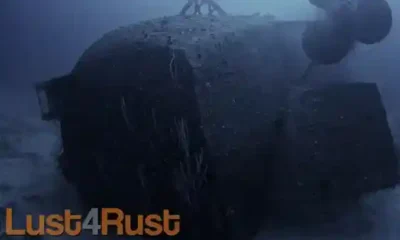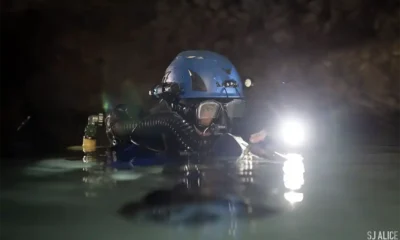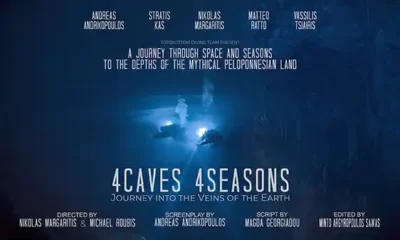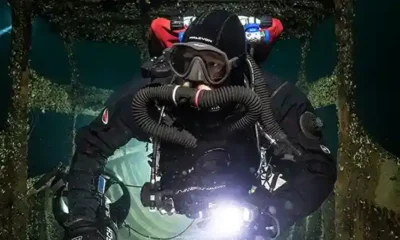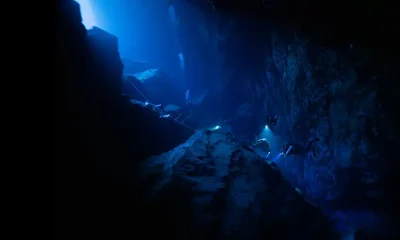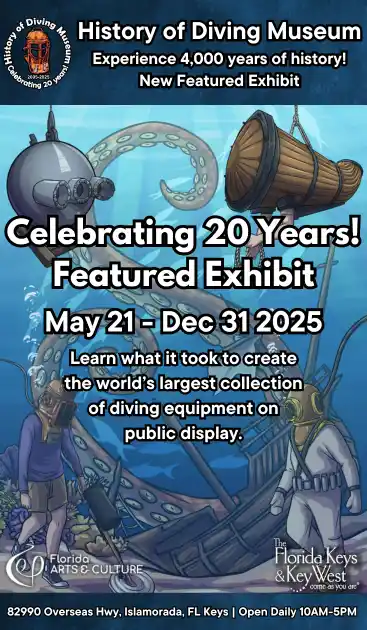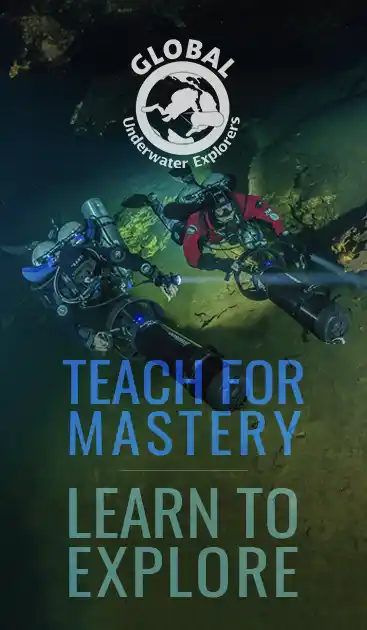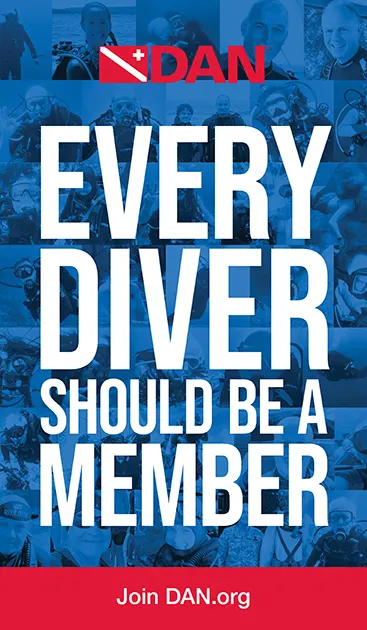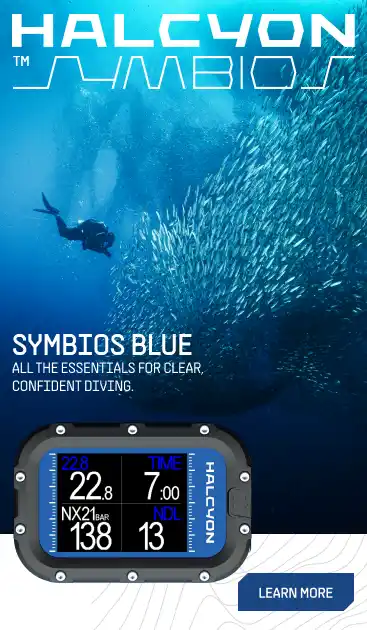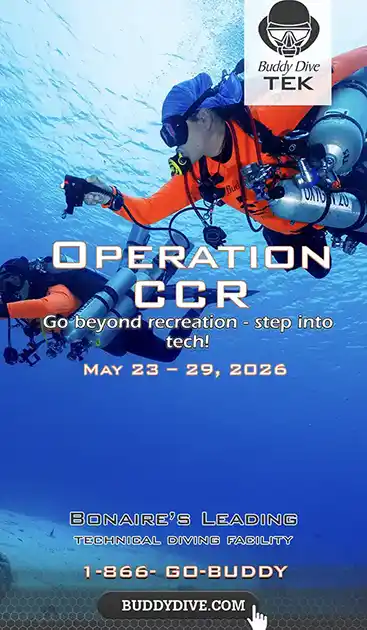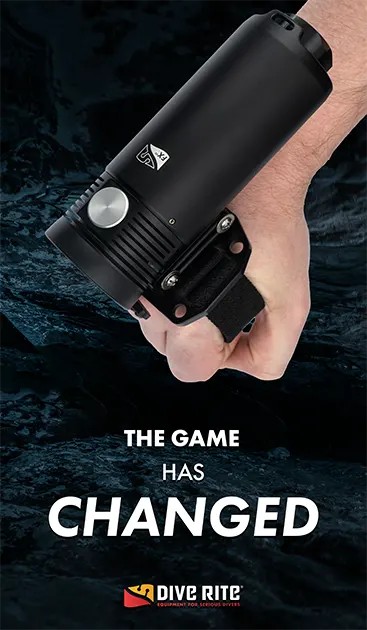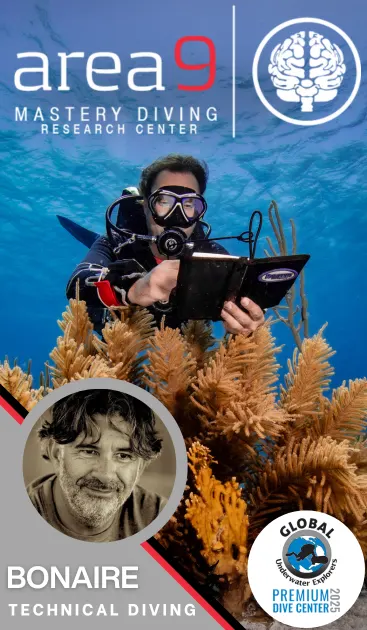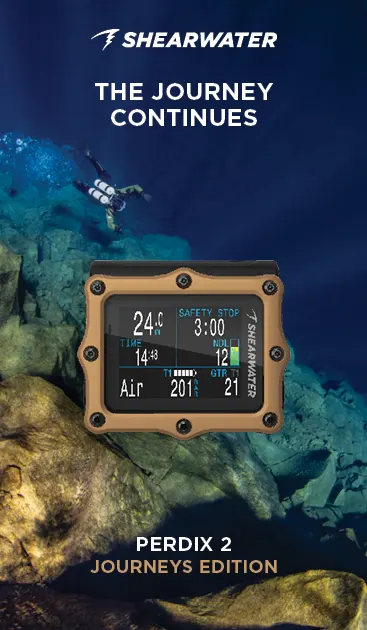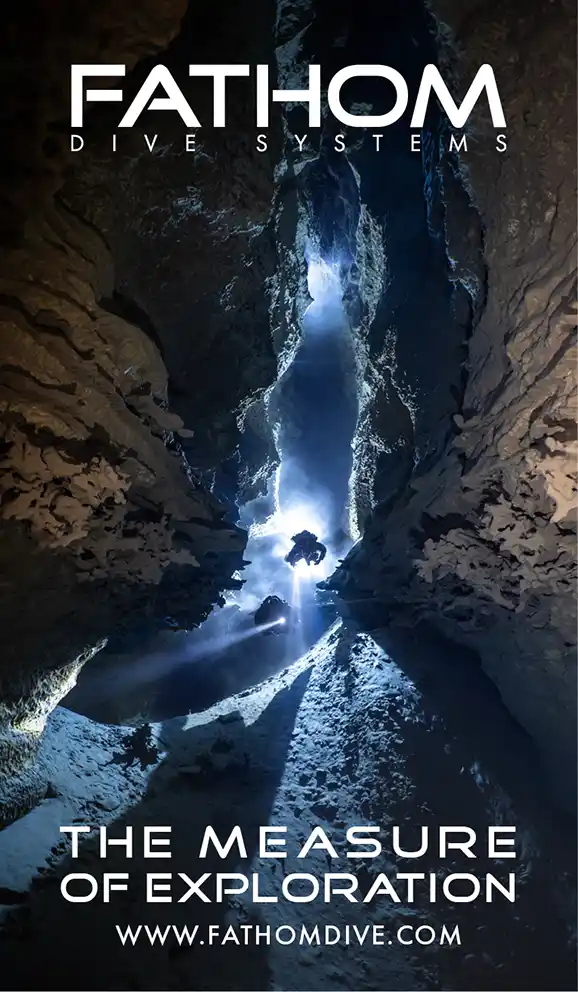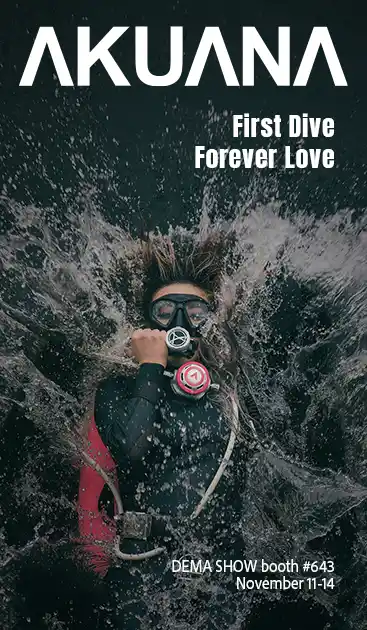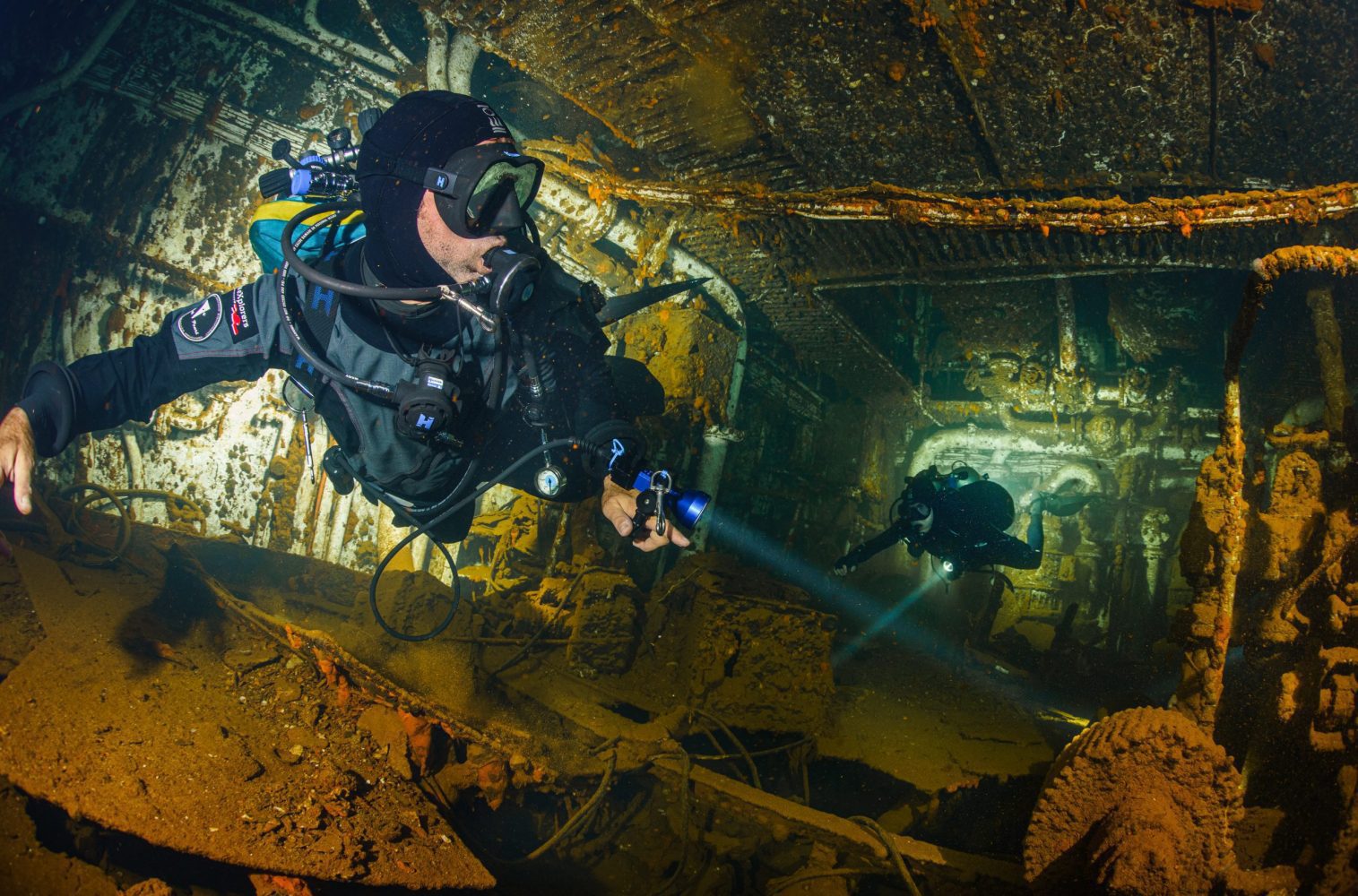
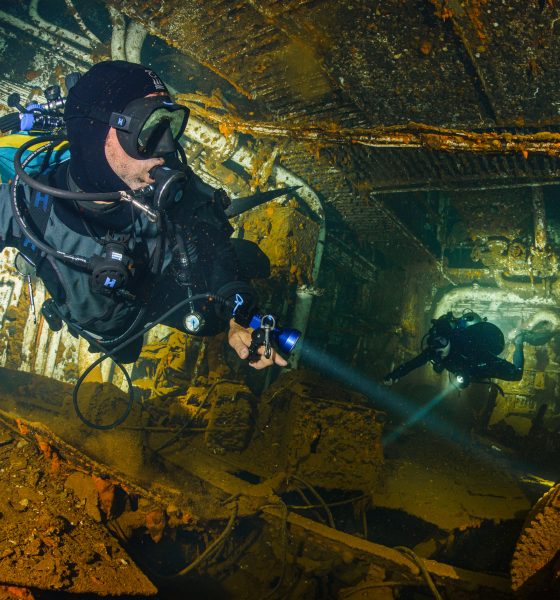
Latest Features
Top Tech Stories of 2021
We’d like to kick off the new year with a selection of 11 hand-curated stories from our deepening well of content, call it, InDepth’s Top Tech Stories of 2021,” representing some of the most read, and what we feel are important stories from the last year.
Header image: the wreck of the Chrisoula K in the Red Sea. Photo by Julian Mühlenhaus
Greetings Tekkies,
January marks our third full year of publishing InDepth and I’d like to think we are starting to get the hang of it! We hope you agree! Over the last year, we published 108 stories covering a wide range of topics of interest and importance to the global self-contained diving community. As we’ve said from the beginning, our goal is to be a community magazine. If you have a story that you think needs to be told or one that you’d like to tell, please reach out to us.
I would like to take this opportunity to thank you, our readers, for your continuing interest and support, and also thank our many contributors, whose work and labors of love are represented here and elsewhere in InDepth.
In addition, I would like to thank our courageous sponsors who make the blog possible. Special thanks to DAN Europe, Dive Rite, Divesoft, Extreme Exposure, Fourth Element, Halcyon, Shearwater Research, The Dirty Dozen, and Fathom Dive Systems, which began its sponsorship with this issue. Please join us in supporting these depth full brands!
We’d like to kick off the new year with a selection of 11 hand-curated stories from our deepening well of content, call it, InDepth’s Top Tech Stories of 2021,” representing some of the most read, and what we feel are important stories from the last year. In addition, find our free downloadable open circuit and closed circuit Annotated Tekkie posters. Take them to a digital printer or reach out to one of our sponsors for a printed copy. We have some exciting stories planned for 2022, so watch this space.
We would appreciate it if you would take a moment to complete our annual ReaderSurvey as well. It will help us to deliver better content to your inbox. Our thanks in advance for your help.
Safe diving,
Michael Menduno/M2
Editor-in-chief, InDepth
Help us by completing InDepth’s annual READER SURVEY ?
Click here to download your free Annotated Tekkie posters

1. Diving Beyond 250 Meters: The Deepest Cave Dives Today Compared to the Nineties
How deep are the deepest cave dives today compared to those 30 years ago, when technical diving was just getting started? We team up with deep diving pioneer Nuno Gomes to review the history of deep cave diving, discuss the issues involved, and identify the people who are giving our underwater envelope a hard shove.
While you’re there, don’t forget to check out our tribute to the community’s incomparable deep cave diver: Celebrating Sheck Exley

2. Can Mouthpiece Retaining Straps Improve Rebreather Diving Safety?
In March 2021, the Rebreather Training Council (RTC) launched a new rebreather safety initiative recommending the use of mouthpiece retaining straps to prevent drowning in the event of loss of consciousness. In this package of stories, science writer Reilly Fogarty, along with Andrew Fock and Paul Haynes explore the value and efficacy of straps and make the case for their use.

3. The Economics of Being a Tech Diving Instructor
Is it possible to make a viable career as a tech diving instructor? How about if you have instructor trainer credentials to boot, err fin? Here Darcy Kieran, principal of Scubanomics, dives into the economics of being a dive instructor based on the results of our joint global instructor survey. How much money did you say you hoped to make?

4. Rules of Thumb: The Mysteries of Ratio Deco Revealed
Is it a secret algorithm developed by the WKPP to get you out of the water faster sans DCI, or an unsubstantiated decompression speculation promoted by Kool-Aid swilling quacks and charlatans? British tech instructor/instructor evaluator Rich Walker divulges the arcane mysteries behind GUE’s ratio decompression protocols in this two part series. And don’t forget those standard gases!

5. Drift is Normal. Being a Deviant is Normal. Here’s Why
What causes individuals and organizations to drift from acceptable standards and behavior? Is it an aberration or something to expect, and what can we do about it? Human Factors coach Gareth Lock takes us for a deep dive into human biases, our tendency to deviate, and what that means for human performance.

6. Exploring Whale Culture with National Geographic Photojournalist Brian Skerry
The tech community tends to equate exploration with surveying virgin cave passage and/or discovering a shipwreck that was heretofore out of reach or out of mind. Here Rolex NATGEO Explorer of the Year, Brian Skerry, discusses his three-year project exploring the arcane life and culture of whales, and exactly what it took to bring home the data.

7. Pulmonary Oxygen Toxicity: Expanding Our Understanding With Two New Models
I know, I know, this is an über-geek story, with math no less, but it’s important. There are two new models that are vying to replace the legacy REPEX method (OTUs) used today for predicting pulmonary oxygen toxicity during diving. Here Reilly Fogarty applies these models to predict and compare the risk results on two BIG tech dives: The SS Brandenberg (199m/625 ft), Tuscany, Italy and Weeki Wachee Springs (124m/404 ft), Florida.

Also, you don’t want to miss instructor trainer and medicolegal death investigator Andrea Zaferes’ deep dive into the physiology and process of drowning, the number one cause of diver fatalities: The Causes, Physiology, and Process of Drowning

8. Gradient Factors In A Post Deep Stop World
World-recognized decompression physiologist and cave explorer David Doolette explains the new evidence-based findings on “deep stops,” and shares how and why he sets his own gradient factors. His recommendations may give you pause to stop, shallower, and longer.

9. Is Freediving Safe?
According to DAN’s 2019 Annual Diving Report, breath-hold diving fatalities accounted for nearly a third, or 52 of the 162 recreational scuba deaths in 2017, and four times the number of tech diving fatalities that year. Is freediving actually more dangerous than tech diving? PFI instructor trainer Ted Harty explains what’s happening and what’s required to improve freediving safety in this best read story from 2020.

10. Fact or Fiction? Revisiting Guinness World Record Deepest Scuba Dive
New information released in 2020 called into question the validity of former Egyptian Army Colonel and instructor trainer Ahmed Gabr’s 2014 Guinness World Record scuba dive to 332 m/1,090 ft in the Red Sea. Did he actually complete the dive? We report on what it all may mean in this two article series.
Wreck explorer and filmmaker Dimitris Fifis dives into the nature and motivation of record setting in diving following the recent deaths of two divers attempting to break world depth records. See: Opinion: Don’t Break That Record

11. Finally, the MOST FUN Story of 2021 (excluding the mermaids): Brits Brew Beer Booty
What do you get when you combine the Brit’s proclivity for shipwreck exploration with their strong affinity for beer? A tasty sunken treasure hunt that yielded 126-year old reconstituted British beer. GUE Scotland’s Andy Pilley recounts the tale.


